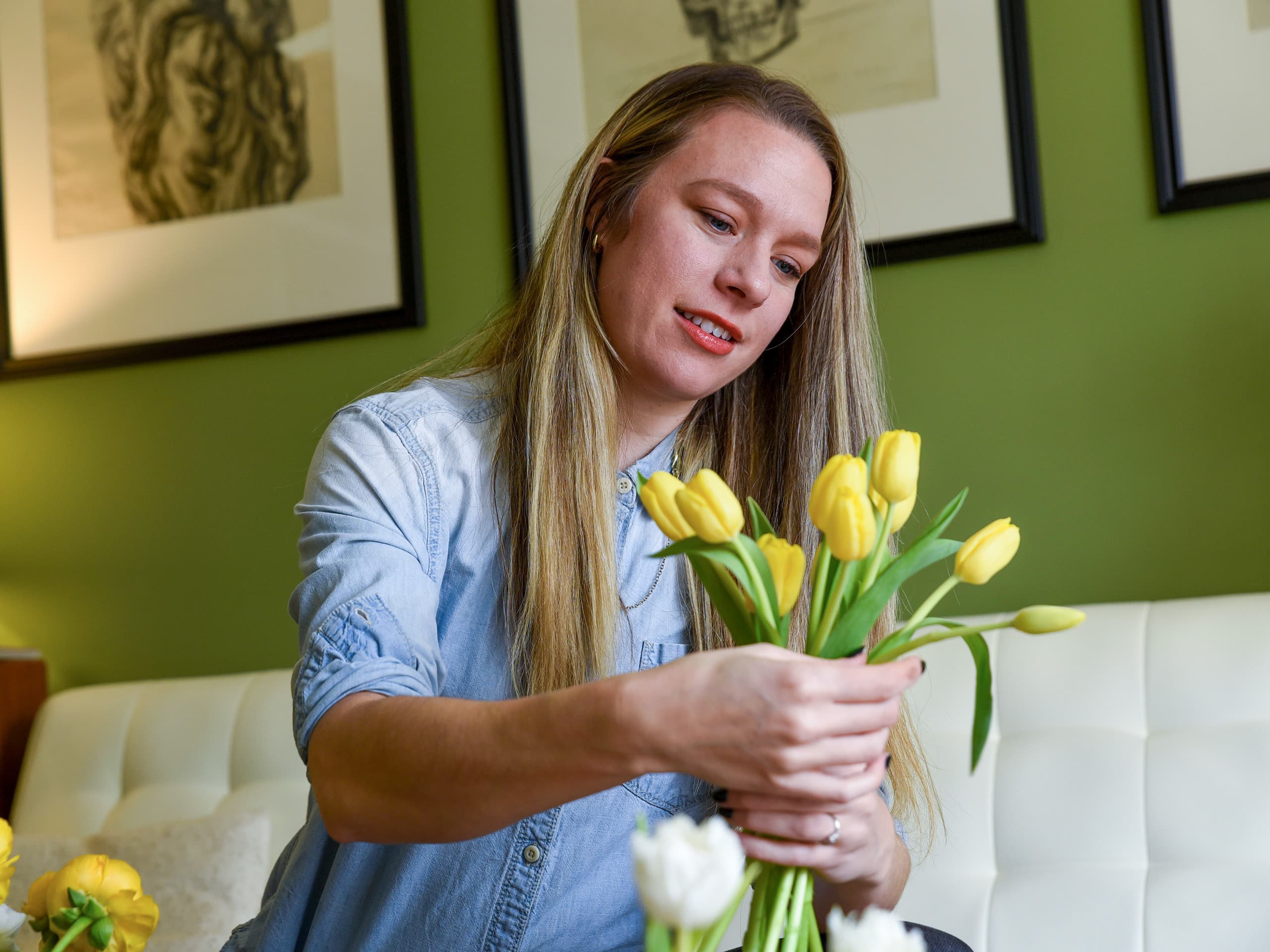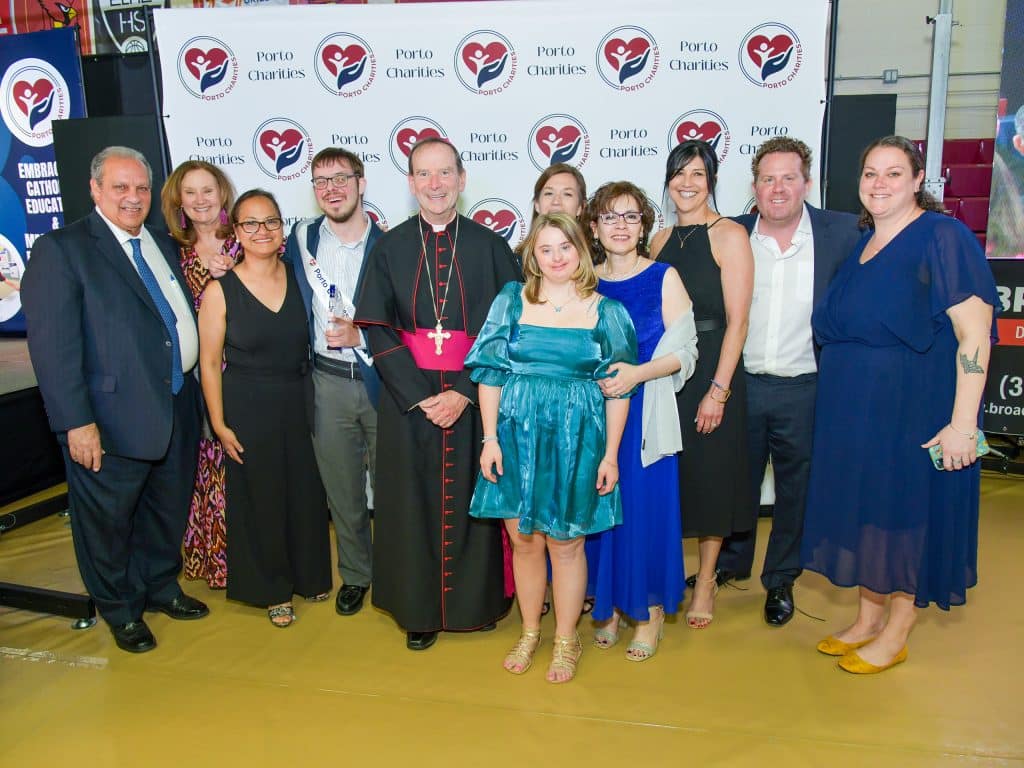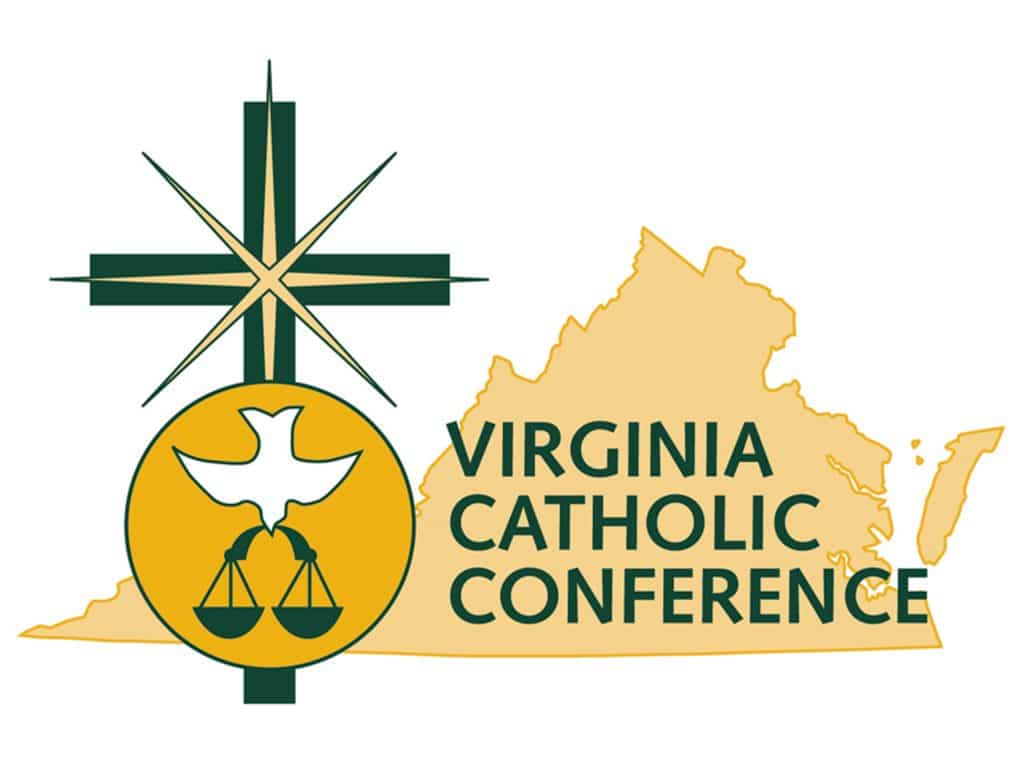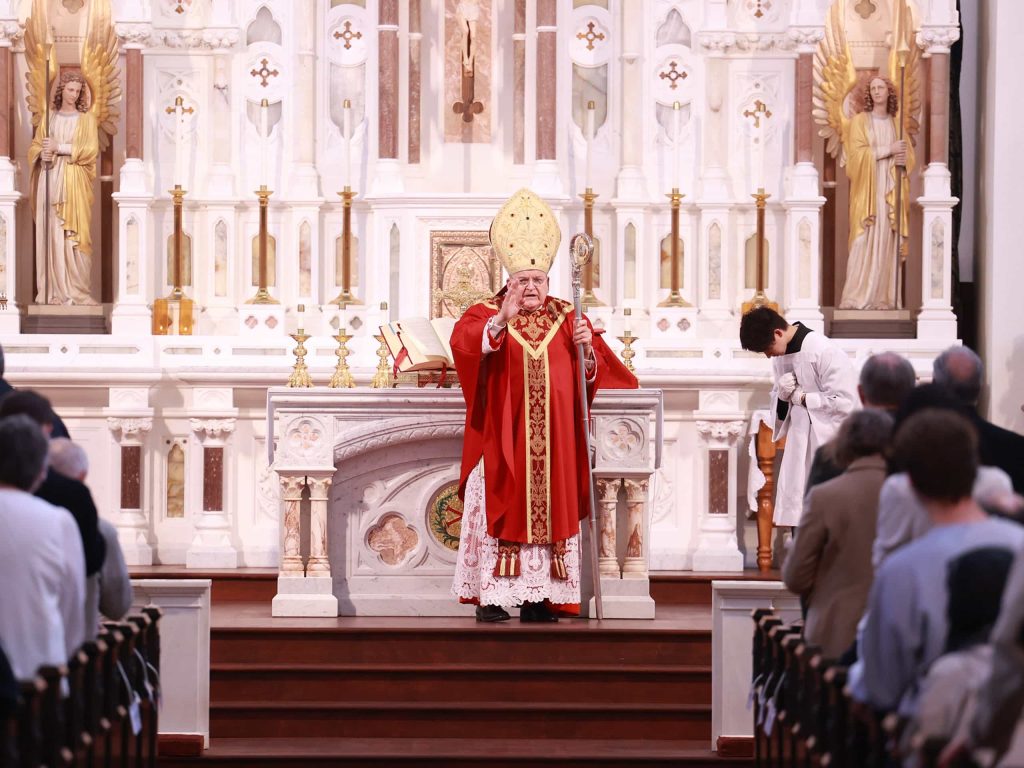On some days, whole floors of Annie Paquette’s townhome are filled with roses, lilacs and peonies as she creates floral arrangements for that weekend’s weddings. The abundance of blooms is a sign that her sustainable floristry business, Floriography, is growing. But her 3-year-old son, Elliott, isn’t so sure about the whole thing. “He’s very funny about the flowers,” said Paquette. “He always goes, ‘Are you going to make another flower mess?’ ”
Paquette and her family are parishioners of St. Joseph Church in Herndon, where her husband, Stephen, serves as director of youth and young adult ministry. She launched her business in 2020, choosing the name Floriography, a reference to the Victorian-era practice of using the symbolism of flowers to send messages. She committed herself to environmentally conscious floristry practices after her earlier experience in the business.
“I just saw how much waste there was with flowers,” said Paquette. There’s trimmed leaves and stems, the plastic wrapping and cardboard that the flowers come in, not to mention the water needed to sustain the flowers and transportation resources used to move them. “It all really adds up quickly,” she said. “In addition, a lot of florists will use floral foam, which stabilizes flowers inside an arrangement. It’s super useful, very easy to work with and really bad for the environment.”
So, Paquette and her assistant, Natalie Kiesel, compost plant waste, reuse flower vessels and find substitutes for floral foam, such as chicken wire. Whenever possible, they buy what’s seasonally available from wholesalers and from Fiat Gardens in Nokesville. If couples don’t want their flowers after the wedding, they offer to donate the bouquets to churches and nursing homes. It’s not the easiest way to run a floral business, but Paquette believes it better honors God’s creation.
“The Catholic identity is one that values our home and treats it like the gift that it is,” she said. “This world gives me what I need to do my job, and then to turn around and not take care of it seems a little off to me.”
Though she caters to all kinds of clients for weddings, funerals, showers and parties, creating floral arrangements for a Catholic wedding is a humbling and prayerful experience, said Paquette. “It’s always a really profound reminder that your work is supposed to give glory to the Lord, and who else gets to bring their work into a church?” she said.
But working with non-Catholic couples provides a special opportunity for evangelization. “Some of my favorite conversations about what the vocation of marriage looks like have been with secular couples who are just discovering that there’s something more to marriage than a legally binding contract and this general feeling of affection,” she said. “(When they see Elliott), it always sparks a conversation about what it means to be pursuing a business you’re passionate about but also prioritizing family.”
Through her work, she tries to veer them away from thinking about their wedding as just a party. As she asks couples about bouquets and boutonnieres, she learns not just about their favorite flowers, but about what inspires them, what their values are and what they believe in. “Beauty is something that humans recognize as sacred,” she said. “People’s appreciation of beauty is just one of the easier inroads to talking about deeper things.”



